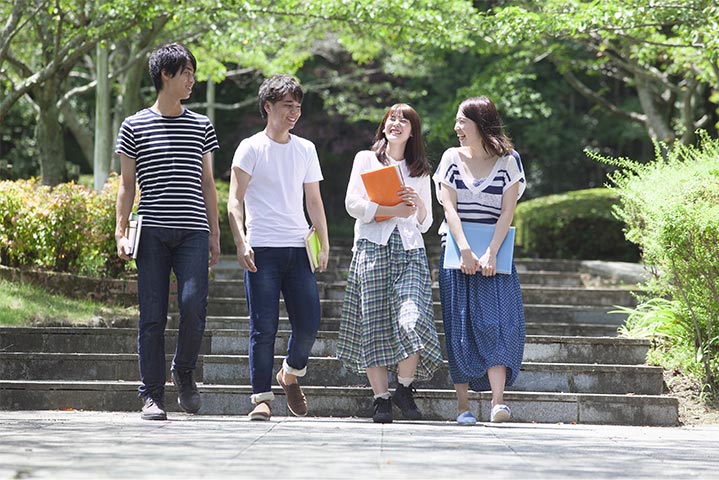Extracurricular activities are an important part of student life in Japan, and approximately half of the university students take on sports or participate in artistic or cultural circles. We understand that the primary aim of your studying abroad is to study a particular subject, but if you are in a university here, joining a club of your choice could be a fun way to enrich your overall experience, socialise with people who share similar interests, and make new friends.

What are clubs and circles?
Generally speaking, extracurricular activity groups can be divided into two forms.
First, there are official, university-authorized groups called “clubs”. Clubs are financially backed by universities and often involve sports activities, so trainings tend to be frequent and very demanding. Club members mostly train for competitions and games.
A characteristic of Japanese clubs is the “age-based hierarchy” custom (jōge kankei in Japanese). Junior students (kōhai) must show respect for senior students (senpai). For example, they address their senpai in an honorific language which is very different from the way they talk to their peers (dōkyūsei) and kōhai. Also, juniors sometimes have to take seating arrangements into consideration at meetings and parties so that the senpai can sit at the seats of honour. You might be unfamiliar with this traditional custom, but it is deeply rooted in Japanese culture and can also be seen at companies, etc.
Secondly, there are unofficial groups run by students: “circles”. In most cases, circles don’t receive any aid from universities and cover a wider variety of activities than clubs. While some circles take their activities seriously, others tend to place more emphasis on having fun. Accordingly, age-based hierarchical relationships in circles usually are less strict than in clubs.
It is also common for two or more circles in one university to share the same kind of activities. In that case, you should choose the one that best suits you based on the frequency and toughness of trainings, the overall atmosphere, and so on.
Let’s give an example to illustrate the difference between the two types of groups. For instance, a tennis club involves hard training for meets, where members compete and represent their university. On the other hand, many tennis circles focus more on cultivating friendship through tennis, practicing to relieve stress, and gathers for parties or drinks.
How often do they meet/practice?
There usually are one to three practices a week, although some groups –very few– practice every day. On the other hand, certain clubs and circles have activities less than once a week or only practice in a certain season.
Apart from their usual activities, many clubs and circles also have gasshuku (training camps) several times a year. Often held during school vacations, at gasshuku, members stay in dormitories nearby the training facilities in order to practice intensively for a few days. Besides brushing up your skills, you can get to know the other members by living under the same roof. So joining a club or a circle is a good way to experience this aspect of Japanese culture.
What kinds of activities are available?
The activities of clubs and circles can be roughly divided into two types: sports and cultural activities.
Sports-oriented groups include tennis, baseball, soccer, American football, rugby, volleyball, track and field, swimming and dance, not to mention all types of traditional Japanese sports such as judo, kyūdō (archery) or aikido. Also, many universities have snowboarding and skiing groups, so it may be a good opportunity to try winter sports.
There are countless kinds of groups dedicated to cultural activities. Just to name a few, there are music clubs (such as orchestras, choruses and bands), clubs related to photography and films, volunteer groups, and English Speaking Societies (ESS) whose aim is to raise the members’ English level.
Among cultural clubs, there are international society groups that promote friendship between Japanese and international students. They usually organize parties to help students mingle and events where Japanese students guide international students around tourist spots in Japan.
Joining clubs or circles in Japanese universities may be time-consuming and physically tiring, but if you are up for the trainings and countless adventures, joining one of them is highly recommended!










